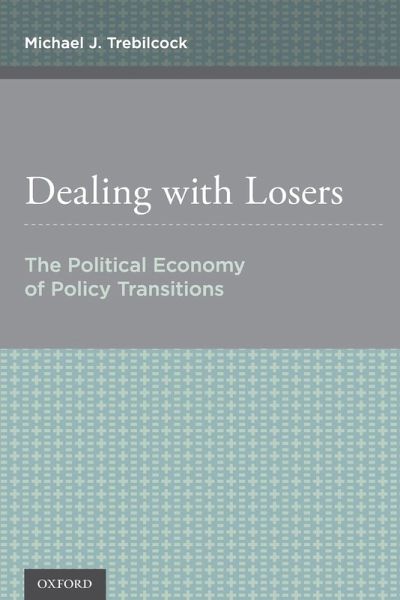
Dealing with Losers
The Political Economy of Policy Transitions

PAYBACK Punkte
16 °P sammeln!
Whenever governments change policies--tax, expenditure, or regulatory policies, among others--there will typically be losers: people or groups who relied upon and invested in physical, financial, or human capital predicated on, or even deliberately induced by the pre-reform set of policies. The issue of whether and when to mitigate the costs associated with policy changes, either through explicit government compensation, grandfathering, phased or postponed implementation, is ubiquitous across the policy landscape. Much of the existing literature covers government takings, yet compensation for ...
Whenever governments change policies--tax, expenditure, or regulatory policies, among others--there will typically be losers: people or groups who relied upon and invested in physical, financial, or human capital predicated on, or even deliberately induced by the pre-reform set of policies. The issue of whether and when to mitigate the costs associated with policy changes, either through explicit government compensation, grandfathering, phased or postponed implementation, is ubiquitous across the policy landscape. Much of the existing literature covers government takings, yet compensation for expropriation comprises merely a tiny part of the universe of such strategies.














